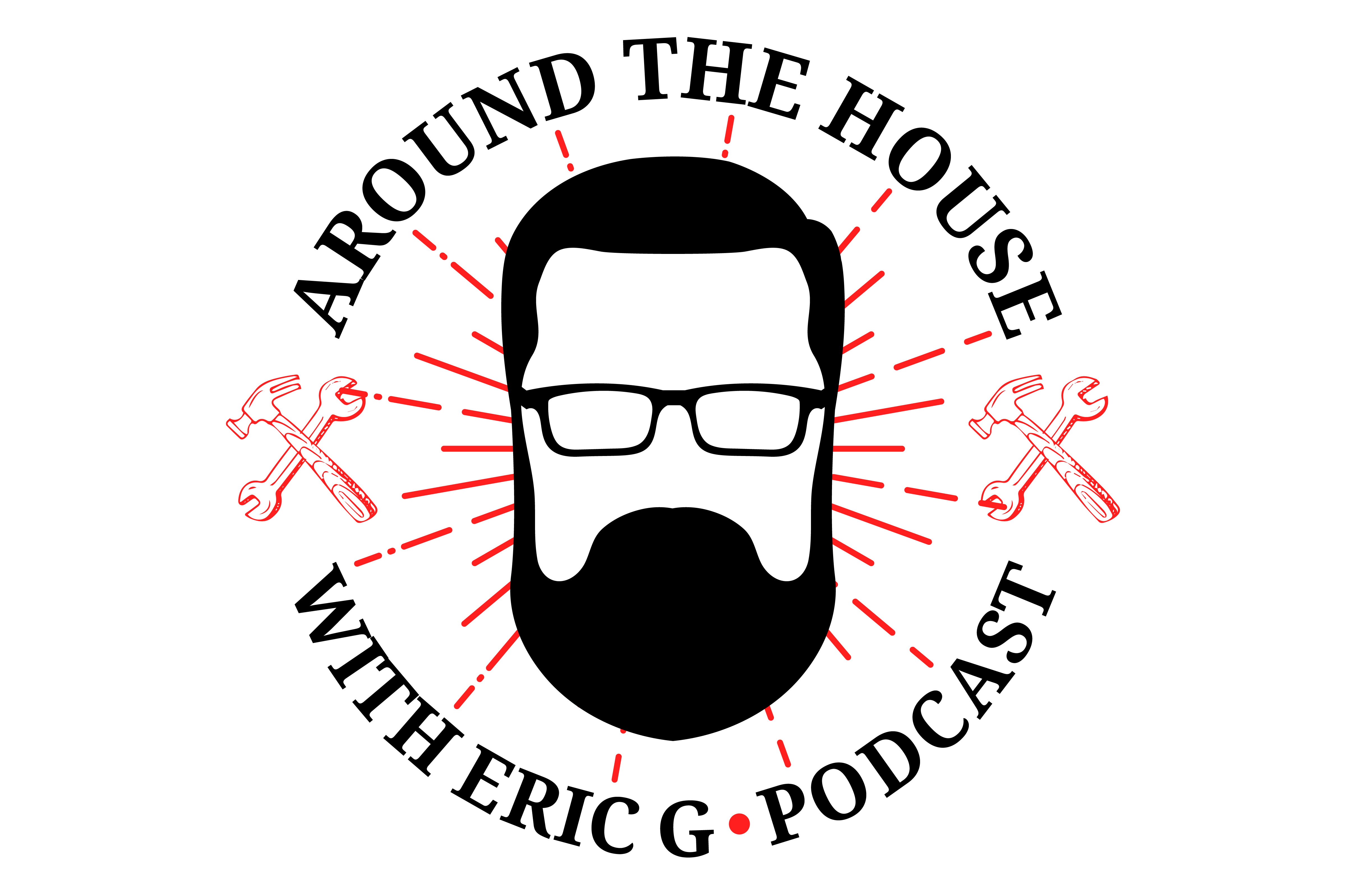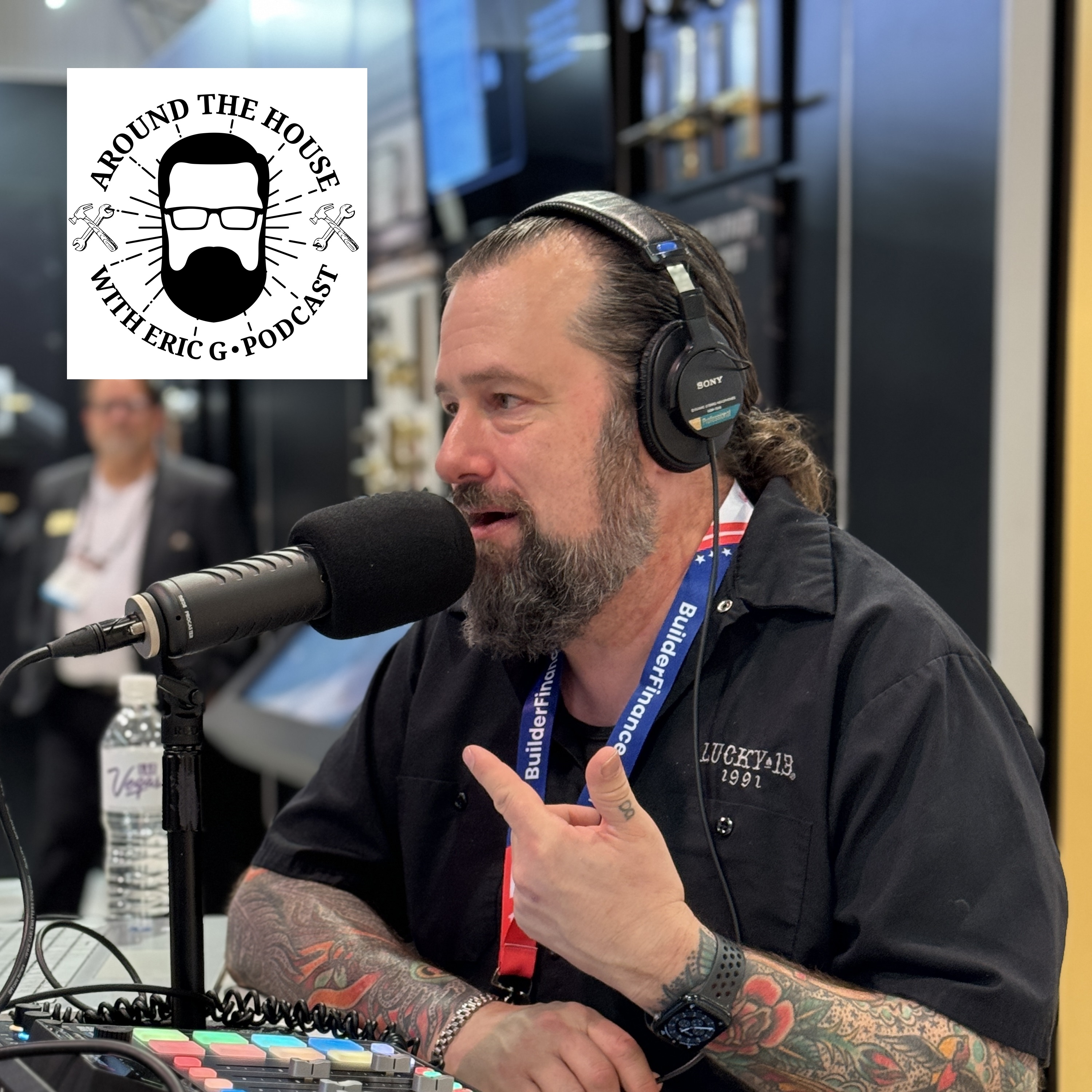Episode 1552
How we might be able to fix our affordable housing problem
Housing costs keep rising. There are some amazing solutions on the horizon but there are some massive roadblocks in its place. How are we going to fix this? Here are my solutions that could be a win win for everyone. Plus we talk about the myths of the homeless issues that are problems in many cities across America.
Thanks for listening to Around the house if you want to hear more please subscribe so you get notified of the latest episode as it posts at https://around-the-house-with-e.captivate.fm/listen
If you want to join the Around the House Insider for access to the back catalog, Exclusive Content and a direct email to Eric G and access to the show early https://around-the-house-with-e.captivate.fm/support
We love comments and we would love reviews on how this information has helped you on your house! Thanks for listening! For more information about the show head to https://aroundthehouseonline.com/
Information given on the Around the House Show should not be considered construction or design advice for your specific project, nor is it intended to replace consulting at your home or jobsite by a building professional. The views and opinions expressed by those interviewed on the podcast are those of the guests and do not necessarily reflect the views and opinions of the Around the House Show.
Mentioned in this episode:
Suscribe to our YouTube Channel
Want even more home improvement tips, tricks, and insider advice? Subscribe to my YouTube channel @AroundTheHouseEricG for project guides, product reviews, and behind-the-scenes content you won’t hear on the podcast. Don’t miss out—hit that subscribe button today!
Need Holiday Gift Ideas? Check out our new ones at AroundtheHouseonline.com
Looking for quick gift ideas for Christmas or the Holidays? Check out our latest gift guide at https://aroundthehouseonline.com/holiday-ideas/
Transcript
[00:00:34] Eric Goranson: If you've got trees and shrubs and bushes that are using a ton of water, you wanna put the water where the roots are, not where it's running down the hill. Check out root quencher. Well, we've got, uh, an interesting midweek special this week. I wanted to talk about some of the changes we're gonna see over the coming years here in housing affordability.
[:[00:01:23] Eric Goranson: And I think we've got a multiple set of issues here. And I wanted to talk about those in a little more detail today of what I think the issues are. We'll talk about more of this than an upcoming show, but I wanted to really kind of set the stage of what some of the issues are. For instance, in my area here, you know, housing is expensive here in the Portland, Oregon area, and it doesn't matter if you're in Portland, Seattle, anywhere on the West coast, it's expensive.
[:[00:02:14] Eric Goranson: So if you've got. You wanna put in five houses on a piece of property outside of that urban growth boundary, you might not be able to do it. And when you're looking at just the market demand of housing, that has really, one of the biggest things that has pushed prices up is availability. And then you have these other problems in West coast states that are different than other places.
[:[00:03:04] Eric Goranson: The good news is for the people out there that are worried about the environment, that is also areas that are not gonna get built over. However, we have a lot of other areas that really, we've got some problems in the Portland area as well, and there are some battles to be coming up, but that is one of the biggest problems we have is the urban growth boundary and it propping up prices to make land prices more expensive.
[:[00:04:09] Eric Goranson: This is coming around the corner. It's actually happening now you're just not seeing it yet, but in the next year or two, you're gonna see literally housing plans that you can get a house, get the building, you know, for a hundred, $150,000 or less. Some of it much, much less. And I know of a dozen companies doing this now.
[:[00:05:06] Eric Goranson: You know, here in the Portland area, it's gotten a little better over the last few months, but you can't get a studio apartment that's livable. And I'm not talking with air conditioning. I'm just talking about something that's livable for under 1500 bucks, unless you're way out of nowhere, or it's in a really rough area.
[:[00:05:50] Eric Goranson: The other problem we have is we have people out there that are taking what we're meant to be jobs for college summers and for [00:06:00] people working part-time to supplement income. Working at McDonald's is not a career making fries and cooking burgers. I did this when I was 14. At no time was that really designed to be a livable wage.
[:[00:06:43] Eric Goranson: Now you had people managing there that were paid decent. But that person working drive-through that was never intended to be a livable wage. And that's what some of our problems are is we have people going into these jobs thinking that, wow, I should be able to buy a new car and have an apartment. [00:07:00] Well, I'm working for minimum wage.
[:[00:07:24] Eric Goranson: And I think that's part of the problem we see today that we we're not gonna be able to fix that because they were never meant to be that. And if we try to fix that, it just makes everything more expensive and it's a. You know, you're, it's, you're just chasing a tail in a circle. The more you raise prices to pay them, the more things get expensive.
[:[00:08:04] Eric Goranson: But really when it comes down to affordable housing, we're gonna see a lot of housing options come out. But then that circles back to what our issues are, and that's gonna be land we can come up with. Let's say we came out with a, I'm just gonna make up a number. Let's say we came up with a, uh, a 800 square foot house for 50,000 bucks.
[:[00:08:55] Eric Goranson: So we can have people have affordable housing. And that's gonna be one of the biggest things [00:09:00] that, that I think we're gonna have to change to get through there. We've got industry changing where they can build healthier, cheaper homes for us in a safer work environment. So let me, let me give you some facts here.
[:[00:09:44] Eric Goranson: A little more balanced. Get into Idaho, 61.9%. Look at. Utah, 63.1. It's absolutely amazing. But then you go into other states like Texas, 1.9%, [00:10:00] Oklahoma 1.5. So our biggest states that have federal land is Nevada, Utah, Idaho, Alaska, Oregon. You have to get down to Wyoming to have less than 50% of land owned by the federal government then is California, Arizona, Colorado, New Mexico.
[:[00:10:47] Eric Goranson: This is where I think we need to open up some of these lands to be able to build and do some things and be able to create some communities that are affordable for people. And that really doesn't cost [00:11:00] the private landowner something else. And that's something we've gotta really think about because when it comes down to it, here in the United States, most people, their homes are their biggest investment.
[:[00:11:39] Eric Goranson: Doing damage to the environment. So those are things to really consider. I think what we've gotta get outside the box a little bit, you know, and the other thing that I'm seeing too is, is the homelessness crisis which our governments have have created. And that started back in the eighties when we got out of rid of, of, [00:12:00] uh, mental healthcare facilities.
[:[00:12:29] Eric Goranson: I mean, I was driving down I five yesterday coming back from a TV shoot. And I see in the median on the side of the road, right over the other side of the barrier, there is some dude putting together a Rubbermaid tough shed so he could live on it on the side of the freeway. Yeah. Walls were up. He was almost had the ceiling snapped in.
[:[00:13:15] Eric Goranson: And, uh, this is my solution. What I would do is I would absolutely kill the Veterans Administration and make that generally go away, get rid of the va, but. I respect our veterans very much. My grandfather was one, and I see what the problems were. What I would do is I would give all of our veterans a medical card that would basically be like a visa and they can go pick their favorite doctor, their favorite hospital, and it is covered at any medical institution that they need to go see, and it is covered and all they have to do at the doctor's office is run it through like a credit card.
[:[00:14:23] Eric Goranson: And then you take all the VA system and make that into those hospitals and turn those into mental healthcare facilities. And then we start, might, might start making some difference and the veterans will get a better service overall because they can choose in the open marketplace where they want to go and go see their favorite people.
[:[00:15:07] Eric Goranson: All right, buddy. Well, that's, uh, my little rant on, uh, on where we are with, with housing prices. I think we've got some great things on the horizon, but, uh, the land issue is gonna be the biggest one that we're gonna have to figure out and, um, until we deal with this homeless issue. The city's putting up these little, little, uh, metal boxes in the middle of the city to house people is not gonna be a solution.
[:[00:15:50] Eric Goranson: But thanks for tuning in to Around the House

